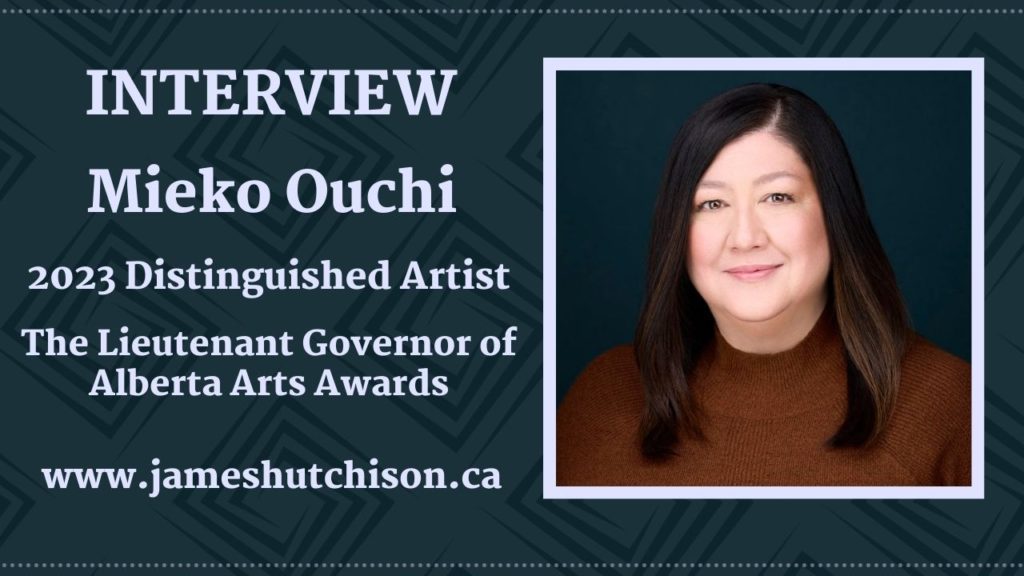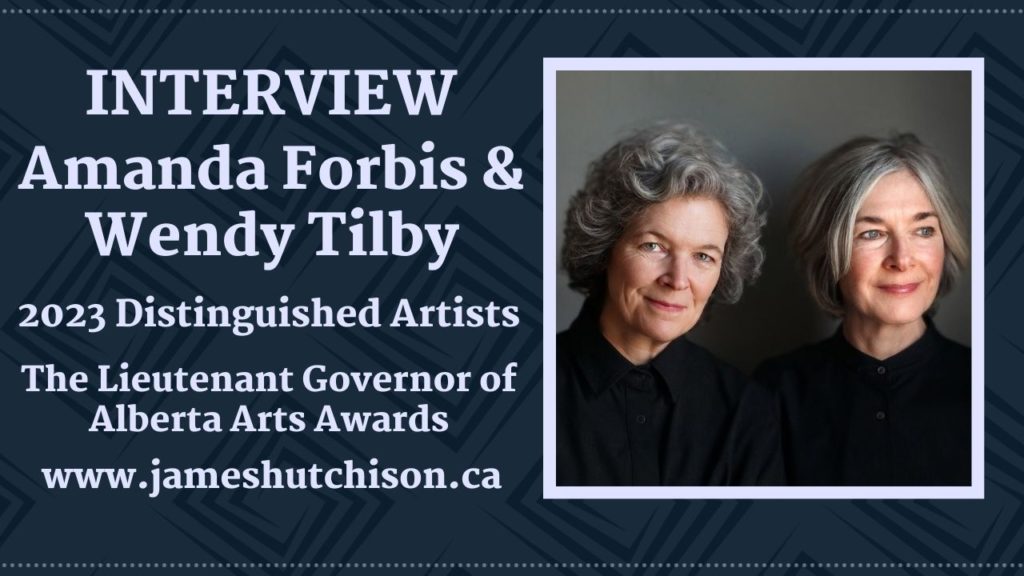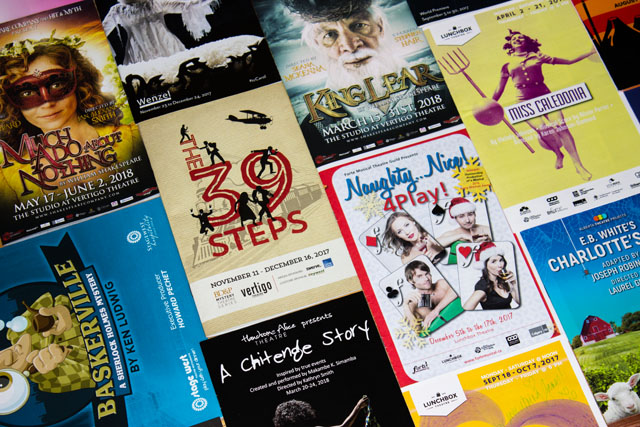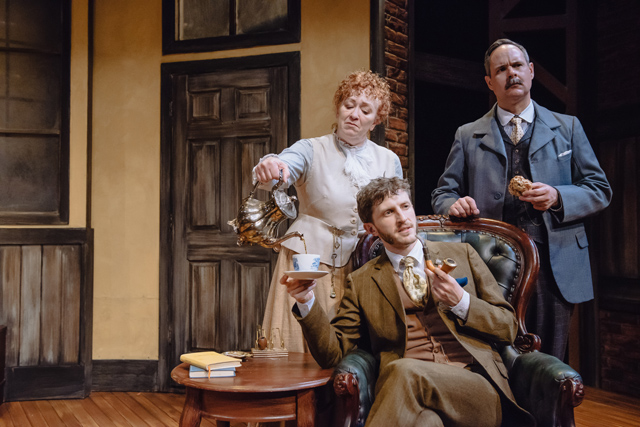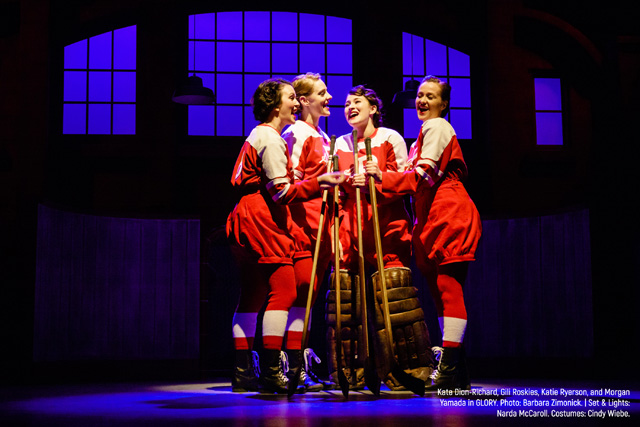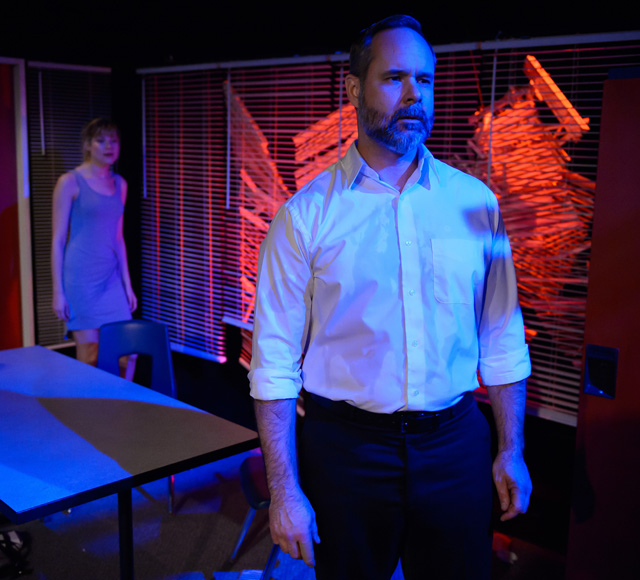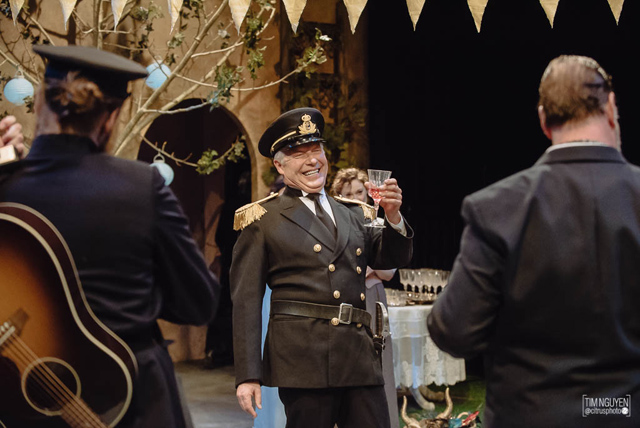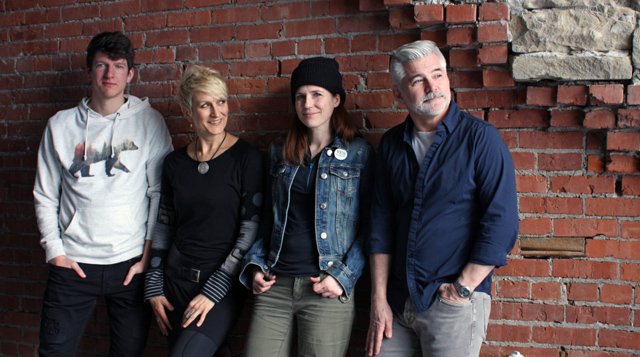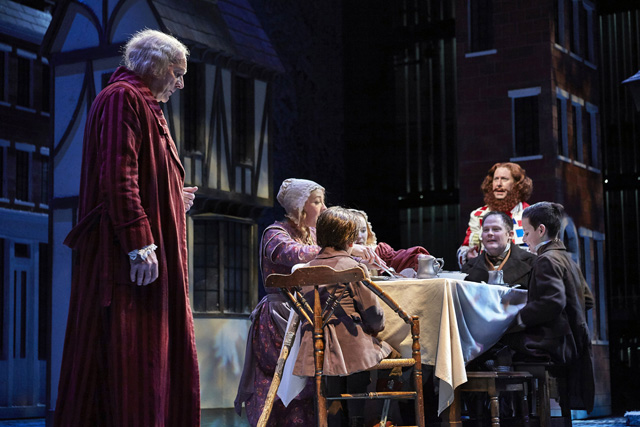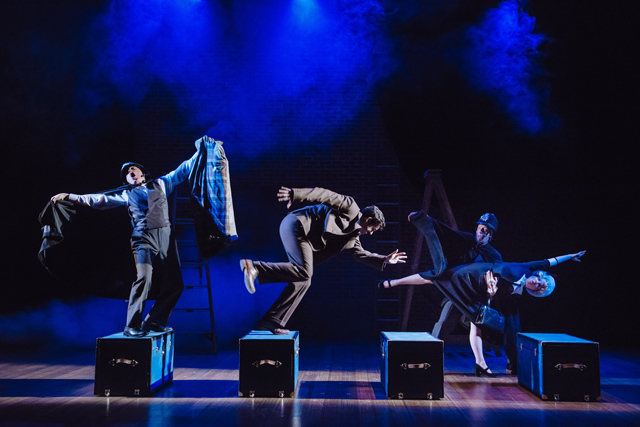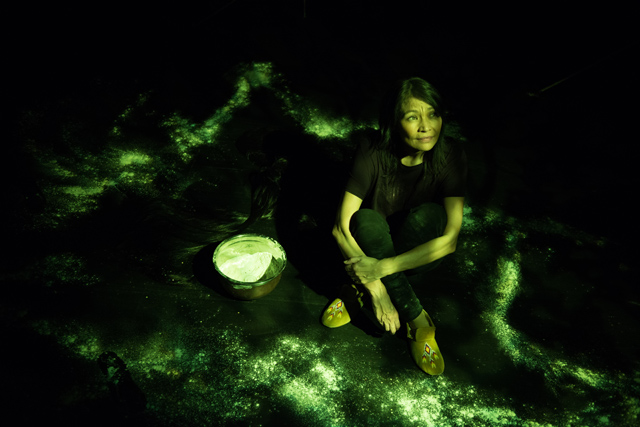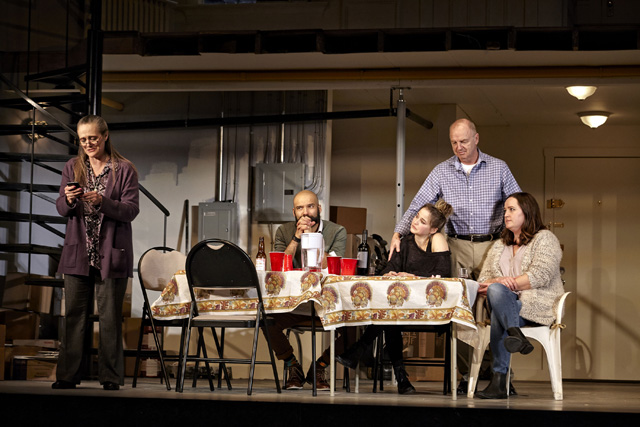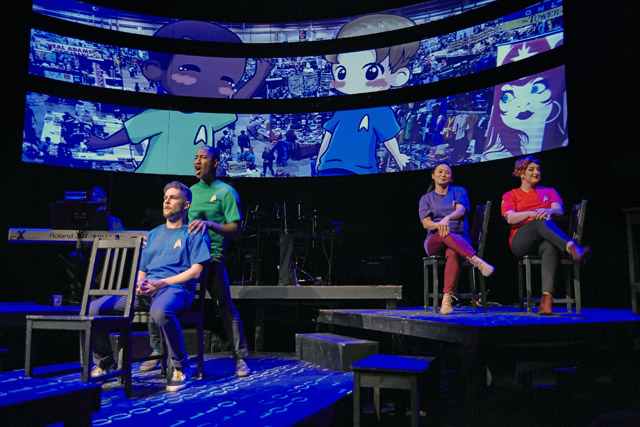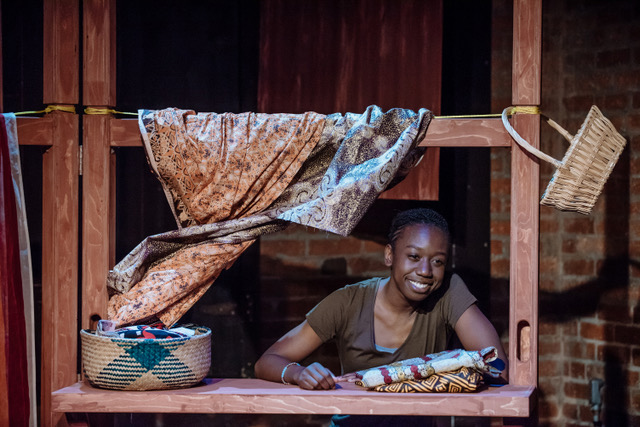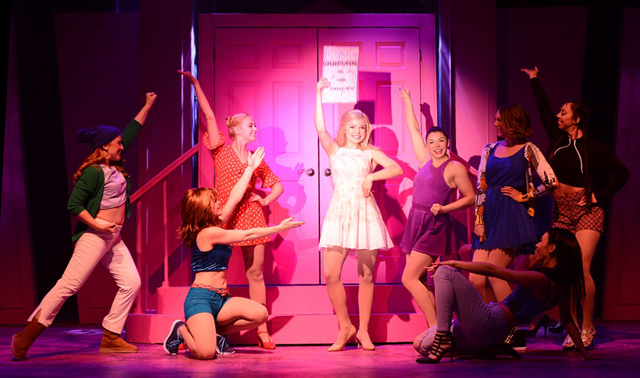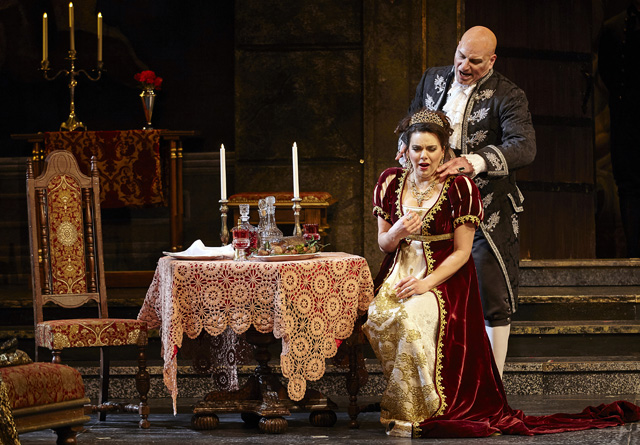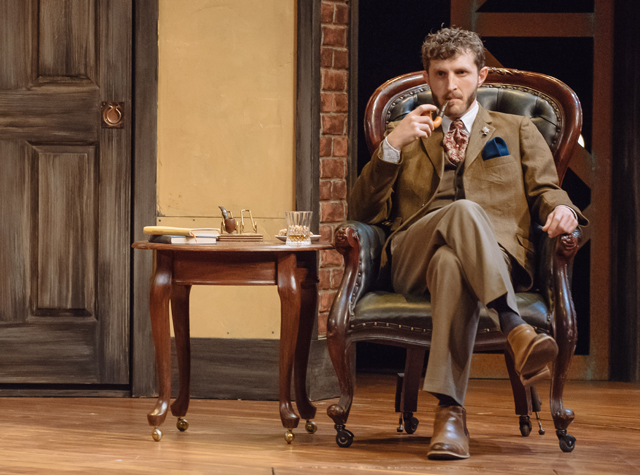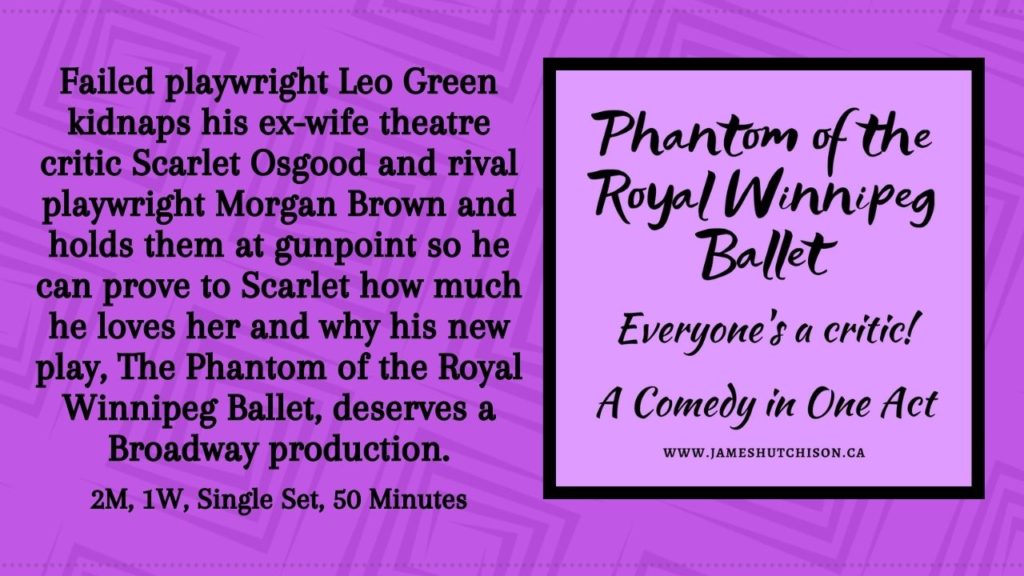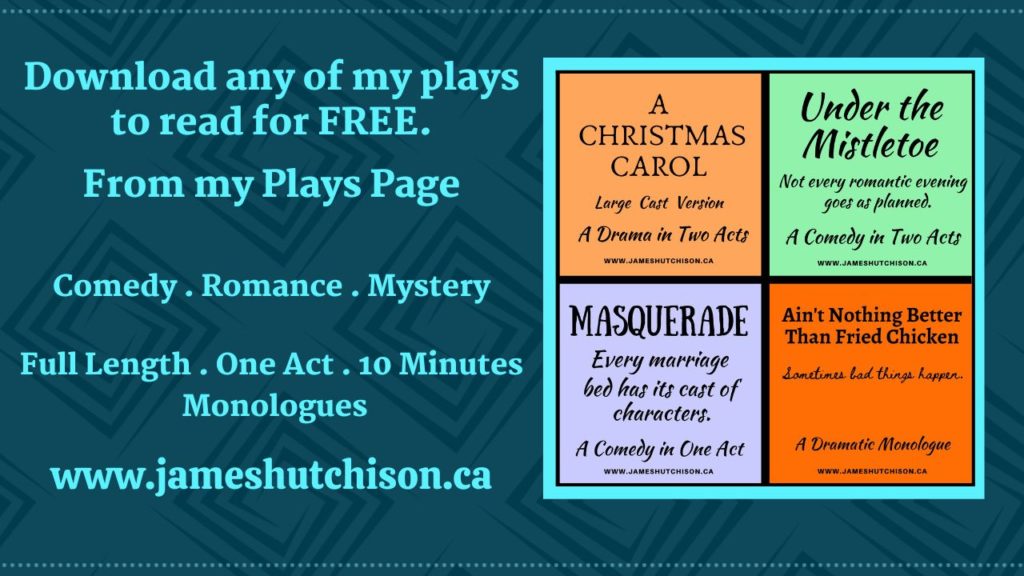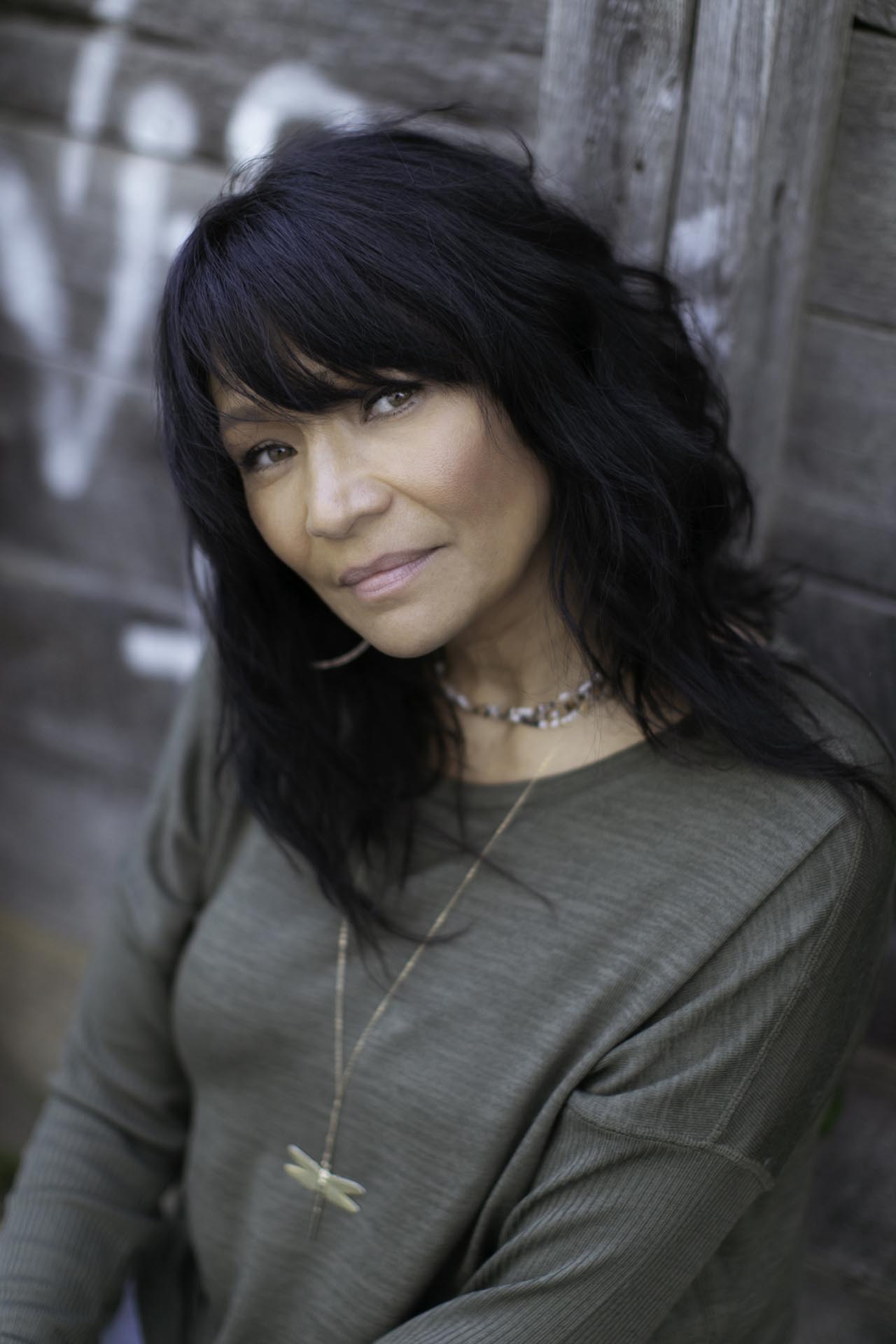
On September 16th, 2023, friends, family, and members of the Alberta arts community gathered in Medicine Hat to celebrate this year’s recipients of The Lieutenant Governor of Alberta Distinguished Artist Awards. This year’s recipients include playwright and theatre artist Mieko Ouchi, film and theatre performer Michelle Thrush and film animators Wendy Tilby & Amanda Forbis.
Chair of the Lieutenant Governor of Alberta Arts Awards Arlene Strom said, “Albertans can be proud of the contributions of these Distinguished Artists who have pushed the boundaries of art to reflect Indigenous identity and expression, present a more inclusive and diverse view of Alberta’s history, and highlight the art of film animation in Alberta and worldwide. Each has contributed immeasurably to the development of the province’s artists, arts communities and expanding art disciplines.”
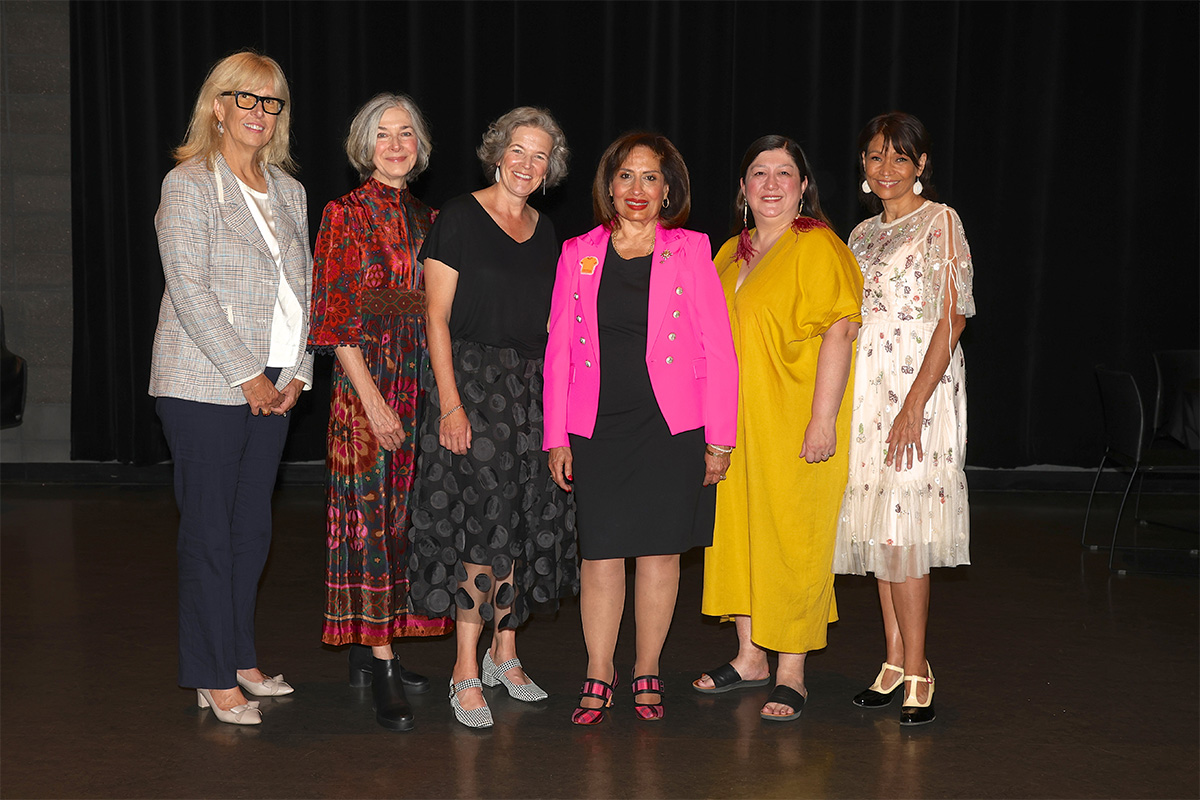
Her Honour, the Honourable Salma Lakhani, Lieutenant Governor of Alberta said, “The women receiving the Distinguished Artist Award this year have offered important contributions to the arts in Canada. We have all been granted the opportunity, through their work, to learn and grow in our understanding of the human condition. Artists such as these are essential to the lifeblood of our communities, and we are truly fortunate to have them as cultural leaders in their respective disciplines, in our province and our country as a whole.”
I contacted Mieko Ouchi as well as Wendy Tilby and Amanda Forbis to talk with them about their work and creative process. You can read those interviews by following the links above. I also spoke with Nehiyaw performing artist Michelle Thrush a multiple award-winning actor whose acting credits include Bury My Heart at Wounded Knee, North of 60, Blackstone, Prey, and Bones of Crows. She is also a director, producer, community builder, and one of the founding members and current Artistic Director of the ground-breaking Making Treaty 7 Cultural Society. In our conversation we talked about her career, about her one-woman show Inner Elder, and what it means to be recognized for her work by receiving The Lieutenant Governor of Alberta Arts Award.
JAMES HUTCHISON
Michelle, when you look back over the course of your career and the body of your work as an artist in what ways has it been an intentional journey and in what ways has it been more a road of discovery?
MICHELLE THRUSH
That’s an interesting question because back when I was a kid there were not Indigenous people on television or anywhere really. We weren’t a part of the shows I watched like Little House on the Prairie when I was a kid or if we were it was Italians playing us. It was something that wasn’t in our psyche and so in my little brown girl brain I never thought that I could be an actress or work in the arts.
But I grew up loving pretending and loving imagination and I was always trying to get my friends together and direct shows and put on plays. And then when I was sixteen or seventeen, I met a man named Gordon Tootoosis who along with Tantoo Cardinal, Gary Farmer, Grahame Greene, Augee Schellenberg, Margo Kane, and of course Chief Dan George were all doing little bit roles here and there on film and that was the beginning for Indigenous people. I’d see them and think whoa there’s a real native person and they’d have a line in a movie like Running Brave where Robbie Benson who is Jewish played the actual star of Running Brave who was a Lakota.
And Gordon who was just a beautiful indigenous actor really encouraged me to follow my dreams and he said, “Michelle it’s important that we tell our stories from a place of honesty.” My big goal in life at that time was to be a social worker. And I ended up throwing that aside and just going, “Okay, I’m going to move to Vancouver from Calgary at nineteen and I’m going to try and get an agent and I’m just going to hope and pray that auditions come up.”
So, I did all that. Moved to Vancouver. And it took a few years of working in restaurants before I started to get a few little auditions. And I often say in 1992 Dances With Wolves came out and that’s when things began to open up for us as actors, and I ended up getting into a TV series called North of Sixty, and that was the beginning. And things just kind of fell into place after that.
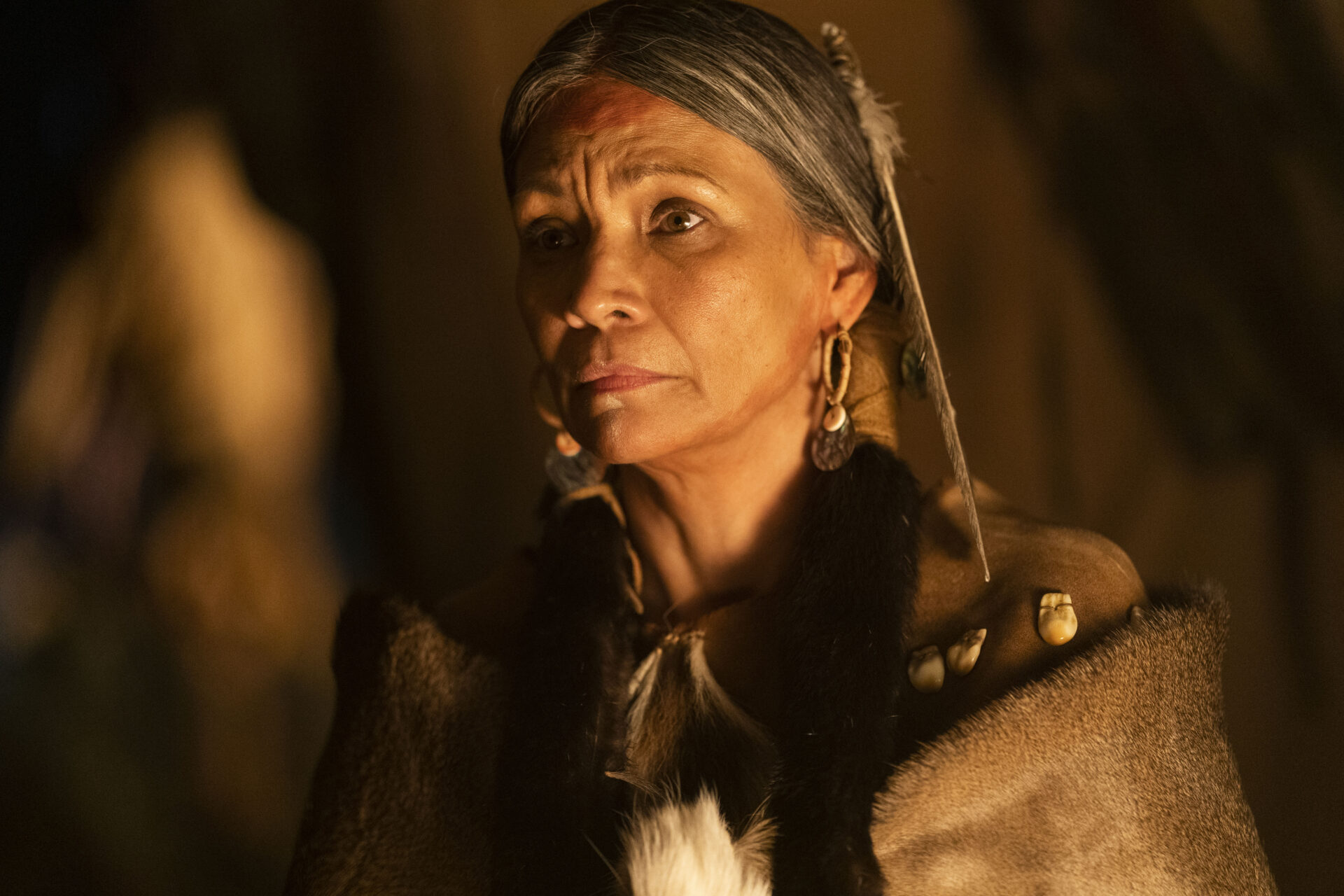
JAMES
It’s interesting you mentioned you were looking at being a social worker and I wonder if there are connections between that career and acting. Because social work and sociology look at relationships between people and between people and society and I think an actor has to sensitive towards those kinds of things.
MICHELLE
I think the connection for me was I grew up with two chronic alcoholic parents. And I didn’t realize the trauma that my family had been through because as a kid – and it’s really hard for me to talk about this – but as a child I had so much shame when it came to being an Indigenous person because I related it to the pain and the trauma of my parents and of my grandparents and of my aunts and uncles and everybody else in my family who was alcoholic. And as a child that imagination part for me was about creating these other scenarios that didn’t include violence and all that stuff that comes along with trauma which is a big part of my one-woman show Inner Elder.
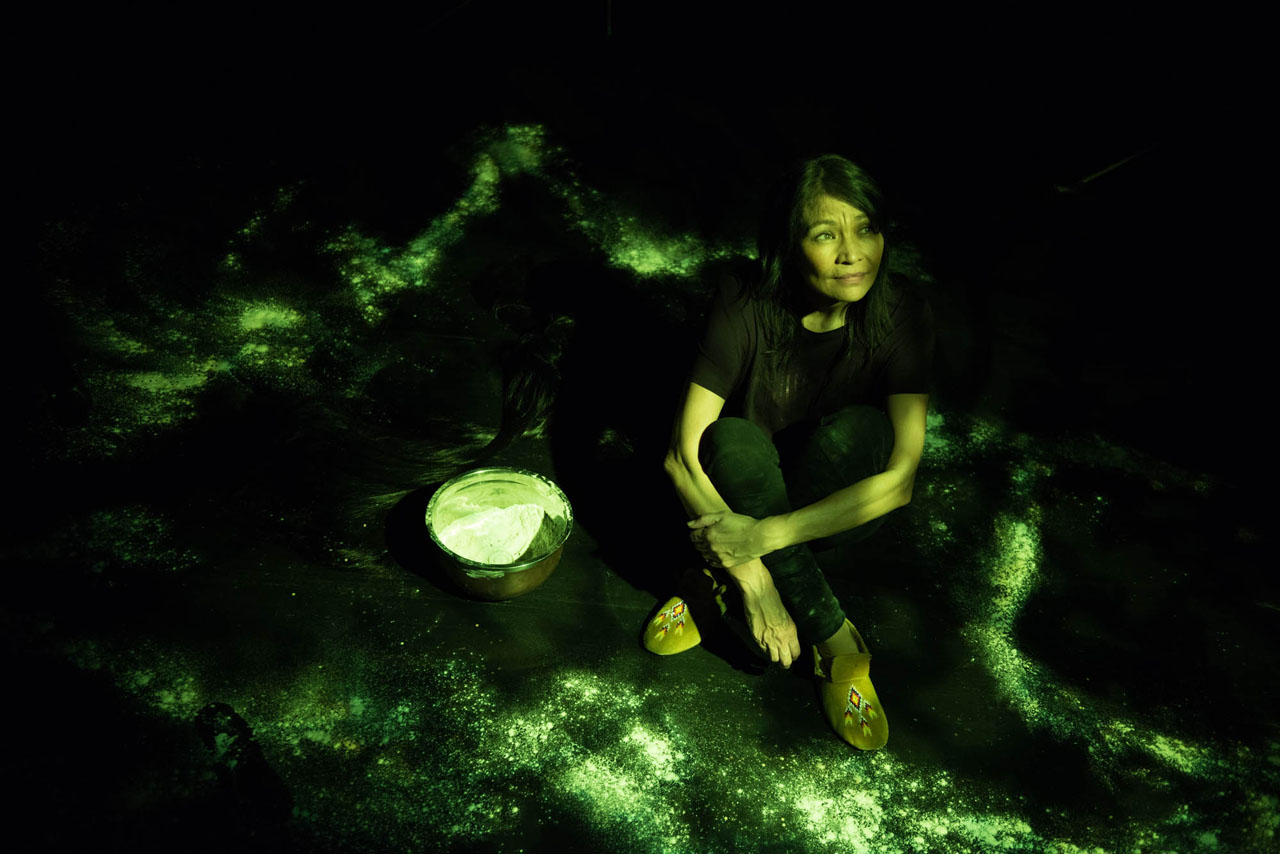
So, when I was a kid, I knew it wasn’t proper that my parents didn’t know how to be parents. I knew it wasn’t proper that they would drink for days and us kids would fend for ourselves. In my brain, I thought if I become a social worker I can create change in this world for children. I can do something that’s going to make sure other Indigenous children don’t have to go through what I went through.
And then I realized through meeting Gordon and getting involved in acting that the power we have as artists can change the world and we wouldn’t have to deal with all the red tape it would take to be a social worker. It was like fast-tracking the ability to create a shift in people’s thinking.
Back then, of course, we didn’t have Truth and Reconciliation. We didn’t realize our families were suffering from this huge history. I just thought that my parents were messed up and I felt a lot of shame because I swore to God that every white kid at my school went home, and their moms would hand them cookies as they walked through the front door, and they had these perfect homes and alcohol didn’t touch white people. That’s how I thought when I was a kid. I thought it was something that was part of who we were as Indigenous people. But then you know obviously I learned that alcoholism touches everybody.
So, that connection between acting and social work was a very strong connection because there was the ability to really affect people’s lives using the arts as opposed to going in and trying to work with the family of Indigenous children. And almost all my work still leans in that direction, you know, trying to create healing. And I always say, “We aren’t in it for Shakespeare. We don’t do what we do to recite Shakespeare. We do what we do to create healing and to contribute to the goodness of our communities and our children.”
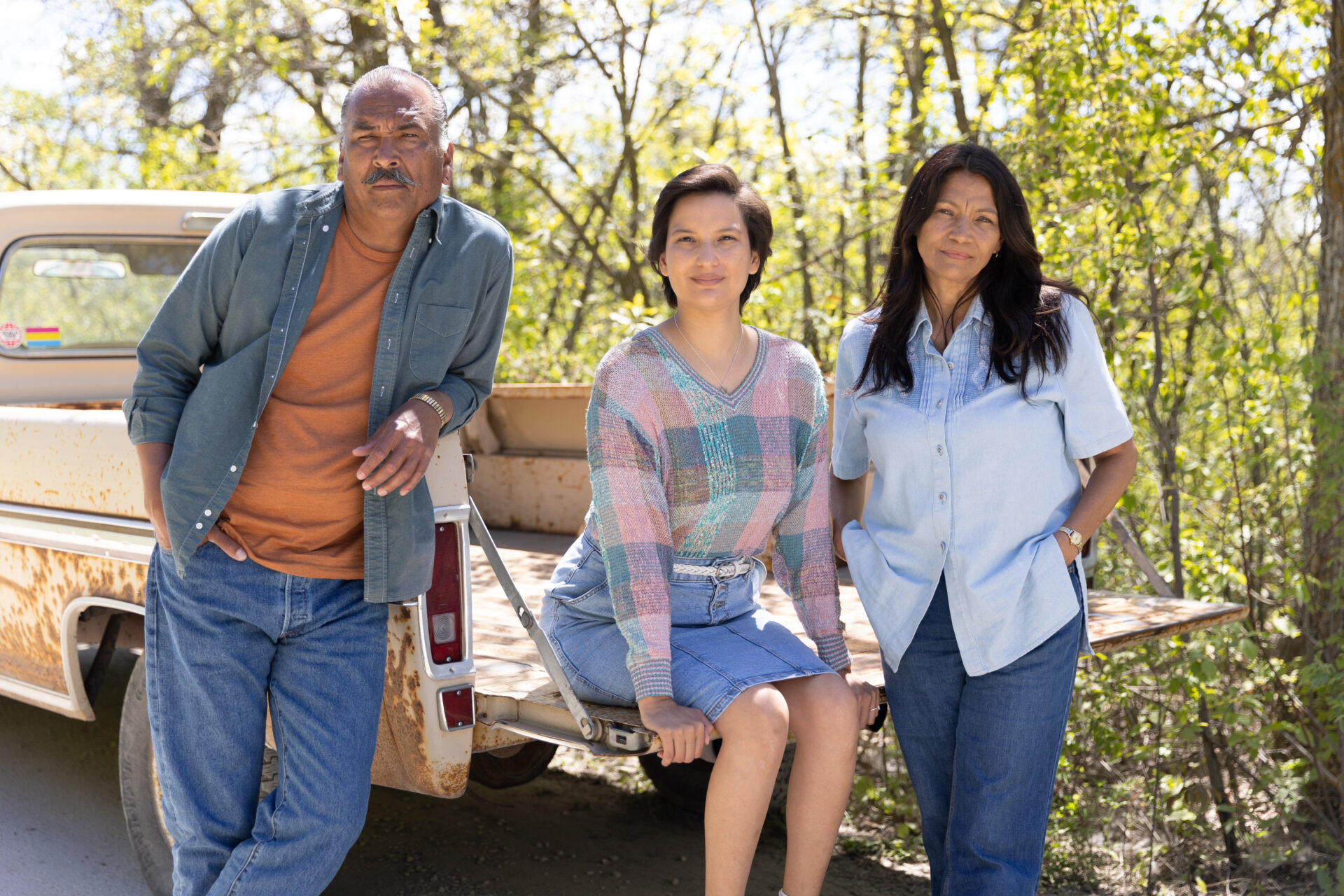
JAMES
You mentioned healing and change and you’re one of the founding members and the current Artistic Director of Making Treaty 7 Cultural Society and on your website, it says – “Making Treaty 7 is dedicated to Indigenous artistic expression and the transfer of Indigenous knowledge through story.” So, what are some of the things you feel you’ve accomplished so far and what are some of the plans, goals, and hopes for the future?
MICHELLE
Making Treaty 7 has had this really long history and I’ll just explain a bit of the history about how we began. Michael Greene who was one of the founding members of One Yellow Rabbit and is a beautiful Icon in theatre here in Calgary was a good friend of mine for many years and a huge supporter of the work I did in theatre with Indigenous story. And he was always trying to figure out ways to bring more Indigenous presence into the High Performance Rodeo and whatever else was going on in Calgary.
So, back in 2012 he became the curator of something called Calgary 2012 which was when Calgary became the artistic capital of Canada for a year. He ran that and we put together a committee of about ten of us – Indigenous and non-Indigenous – so we could have an Indigenous presence and we ended up forming a template for what we wanted to do. Part of that was exploring the land and the history here in Southern Alberta and how the land connects us to story. And not a lot of people including us – I’m Cree – my family is from Maple Creek Saskatchewan Treaty 4 but I grew up here in Treaty 7 and I have family who are married into the Blackfoot Confederacy, but we didn’t know much about the treaty.
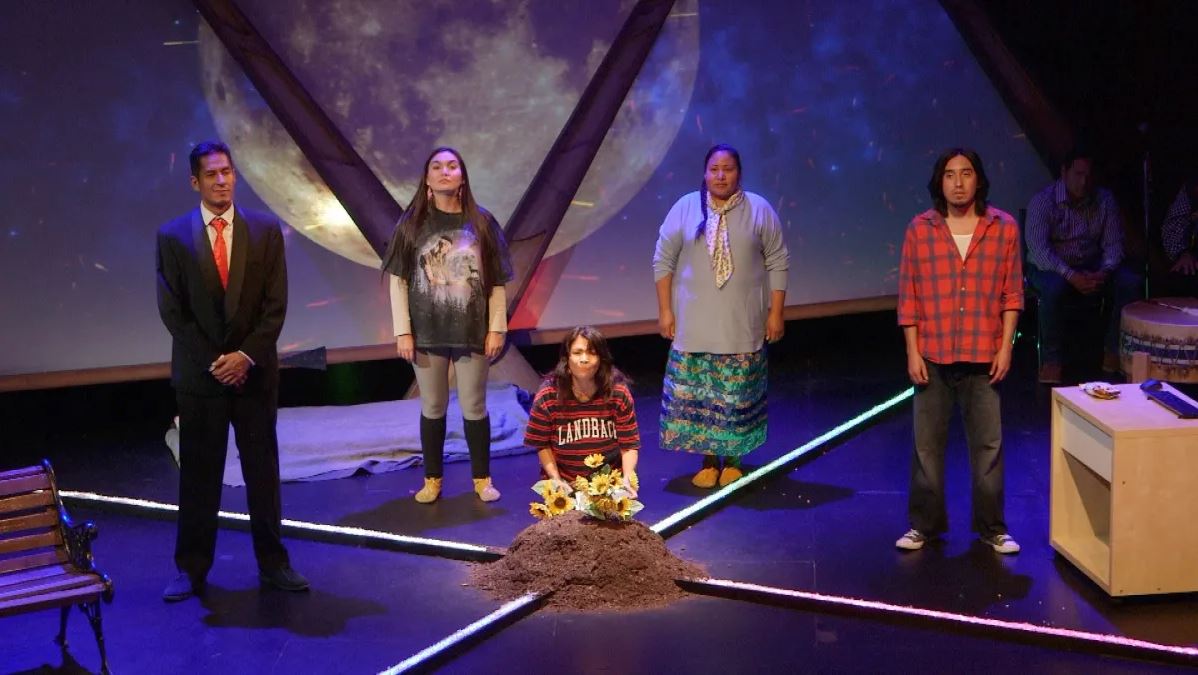
So, I didn’t know anything about the treaty and the Blackfoot artists that we brought in didn’t know a lot about the treaty which was signed in September 1877 in Siksika. So, it was a huge learning journey for us, and Micheal ended up writing these big grants and bringing together over a hundred elders from Southern Alberta. And we asked what do you know about Treaty 7? And a lot of their parents and their grandparents were at the Treaty signing and so they opened up this huge vessel for us. And as artists we spent the whole weekend just listening to all these elders talk about the Treaty and the true intention of Treaty 7. And they talked about what life was like leading up to the signing, what life was like on those ten days, and what life was like after the Treaty was signed. What were the repercussions? What happened with the Indian Act. All these things.
And they just filled us up with all this incredible knowledge and we went out to Banff Centre for two weeks. And Micheal asked myself and Blake Brooker to be the directors of the show and I was an actor and a writer on it as well. And we came up with the very first Making Treaty 7 and we had to perform it for the Elders first and get their permission which we did. And it became this huge spectacle of incredible entertainment which brought in all the voices that call Southern Alberta home but was an Indigenously led process.
And since then we’ve been expanding on that and as the Artistic Director my goal is to wake up the stories that belong here. That are a part of this land. And to decolonize theatre and create a safe space for Indigenous people to tell stories of the land and I’m very proud because Making Treaty 7 is doing some really beautiful work.
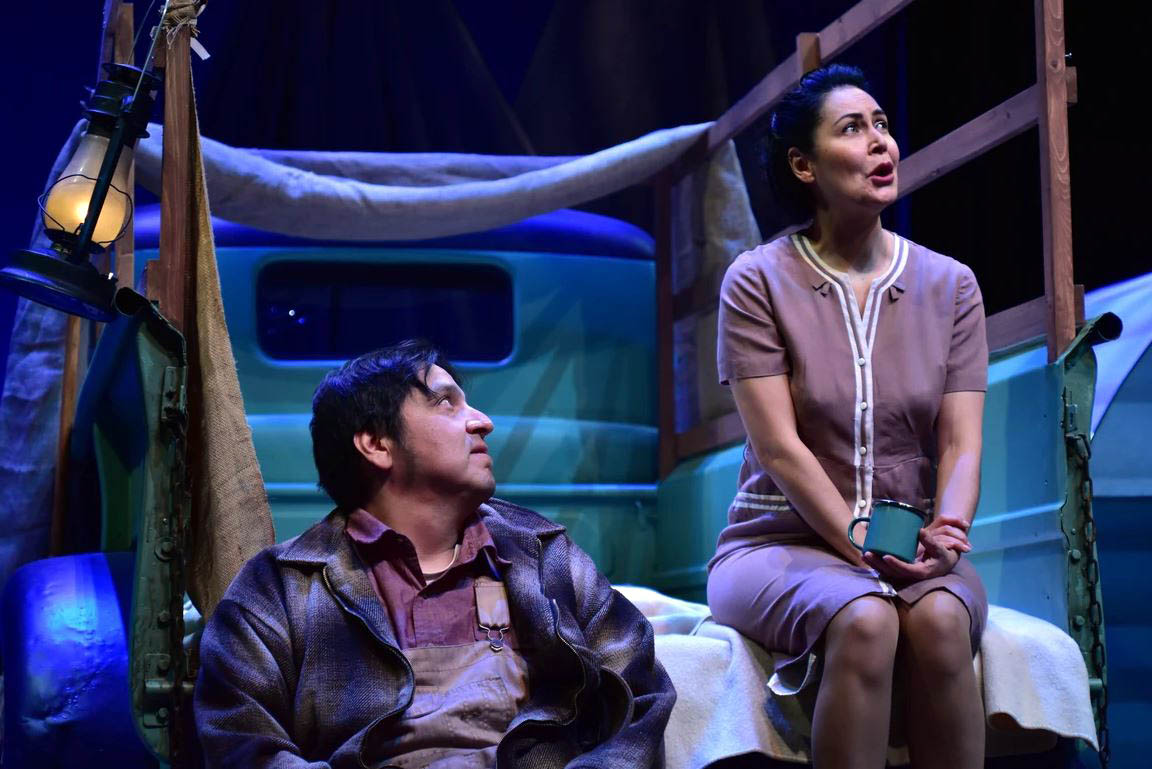
JAMES
You mentioned your own show. You touched on it and I wanted to ask you a little bit about that. It’s called Inner Elder. I saw it when you did it at Lunchbox Theatre and really enjoyed it and thought it was an amazing piece of theatre. And in it you transform into an Elder in the play and it’s moving. It’s funny. What was the genesis of the story and what are some of the highlights of performing that piece?
MICHELLE
So, more than thirty years ago this character started coming through me and she was an old woman and she loved comedy. Her name is Kookum Martha and she was very much a clown in a lot of ways. And so I started to do comedy and she started to be known as an MC of various Indigenous conferences and concerts in Canada. And I hosted the Inspire Awards on CBC a few years back and we did some things with Kookum on there. And in 2018 Ann Connors was the curator of the High Performance Rodeo and she had seen my Kookum character and Anne’s like, “Why don’t you create a big show and we’ll fund you and we’ll present you for the Rodeo.”
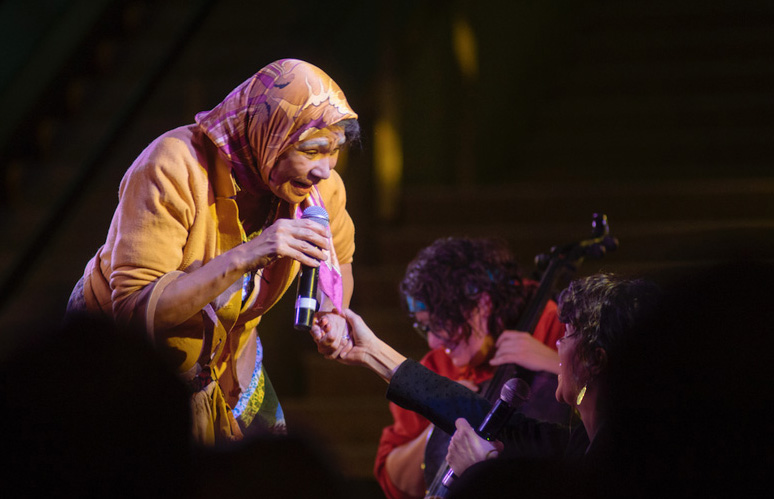
And so, I was like how can I do a show in a way that honours the clown of Kookum as well as telling my own story in a way that doesn’t make me a victim. That allows me to sort of flip the script on what it means to grow up in an alcoholic environment and then winning the Gemini for playing a chronic alcoholic on Blackstone which is a show I starred on for many years. And I created a show about learning how to take what’s given to us in life and then turning it into something that works for us.
And when I get into the zone with Kookum she can get wild on stage and I’m like, “Oh my God, did I just hear her say that?” And I tell people when they hire me to do my comedy with Kookum I am not responsible for any marriages that break up because she goes after the white guys all the time. She picks on them and they fall in love with her. It’s a fun character. And I’m a true believer that as artists we channel our energy through us and it’s not about us – it’s about being vulnerable enough to bring that energy through us.
JAMES
That’s part of the magic of theatre I suppose that moment that you’re so fully in the story and the performance that it’s almost not really you.
MICHELLE
Yeah, it’s magic. And it happens in film too. I swear to God on that episode of Blackstone I did where I won the Gemini I stood there on my mark before I heard action and I prayed and called in my grandmothers, and they took over my body and I felt like I was allowing them to work me through that scene. And low and behold I won a Gemini and a whole bunch of other awards but it’s that trust to be able to really zone in taking the focus off of yourself and putting it on the story and then just allowing that energy to come through you. It’s about being vulnerable to the moment of creation.
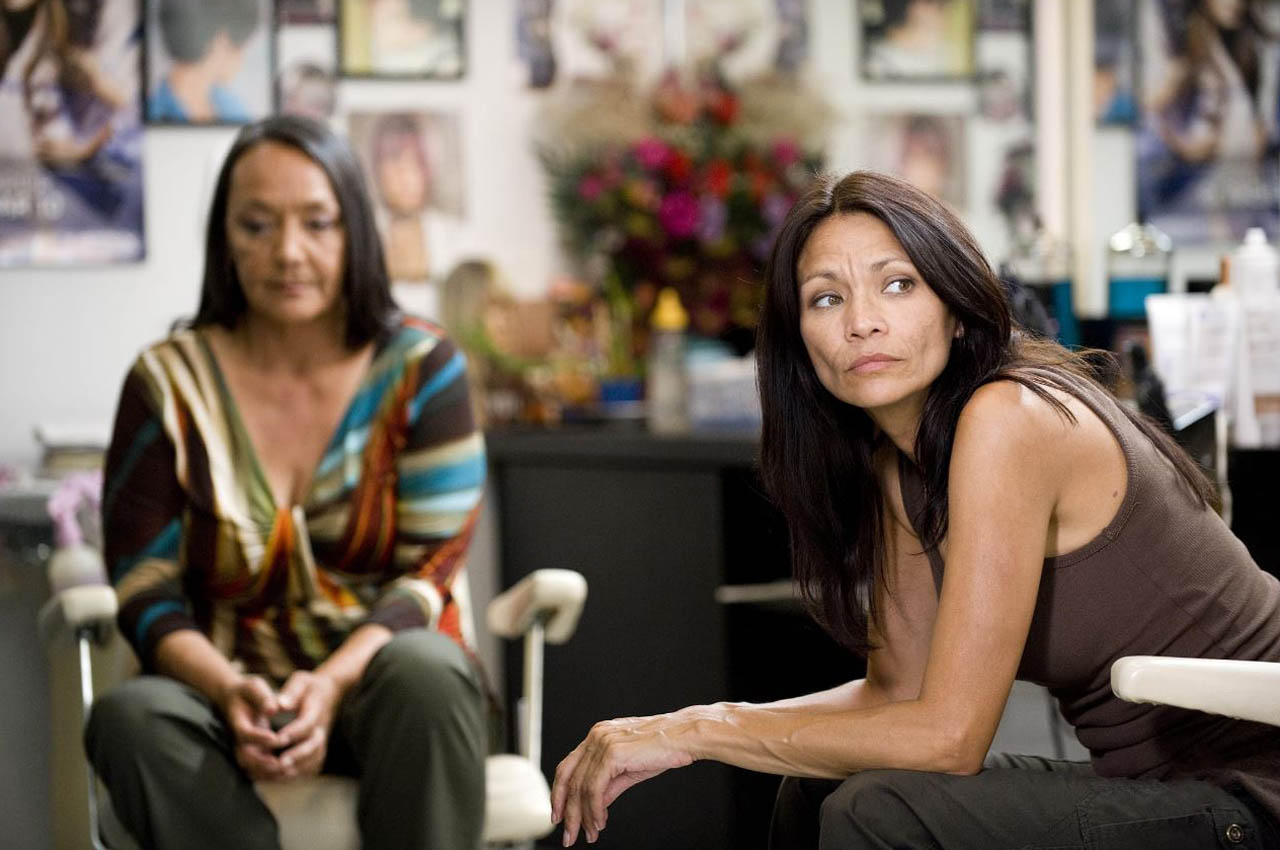
JAMES
You know one of the things art can do is help us understand our place in the universe but I’m sort of curious as an artist do you think art provides actual answers or do you think art operates more to provoke us to come up with answers and ask questions.
MICHELLE
I think both. I often say as Indigenous artists that we’re frontline workers. We shine light into places that are dark. And the work that we do is not just about a love story or whatever. The work we do whether it’s in film or in theatre is tough and it sometimes creates huge amounts of triggers for people because what we focus on is bringing to light things that people don’t want to talk about.
And the work that I’ve done through the years and all of us as Indigenous Artists have done through the years is really truly groundbreaking work I think because that’s how you bring healing. I often say if you have a wound and you just continue to cover it all the time with Band-Aids it will never heal. You have to be able to bring the light to allow that wound to heal and I feel that’s what we do as artists – we bring light.
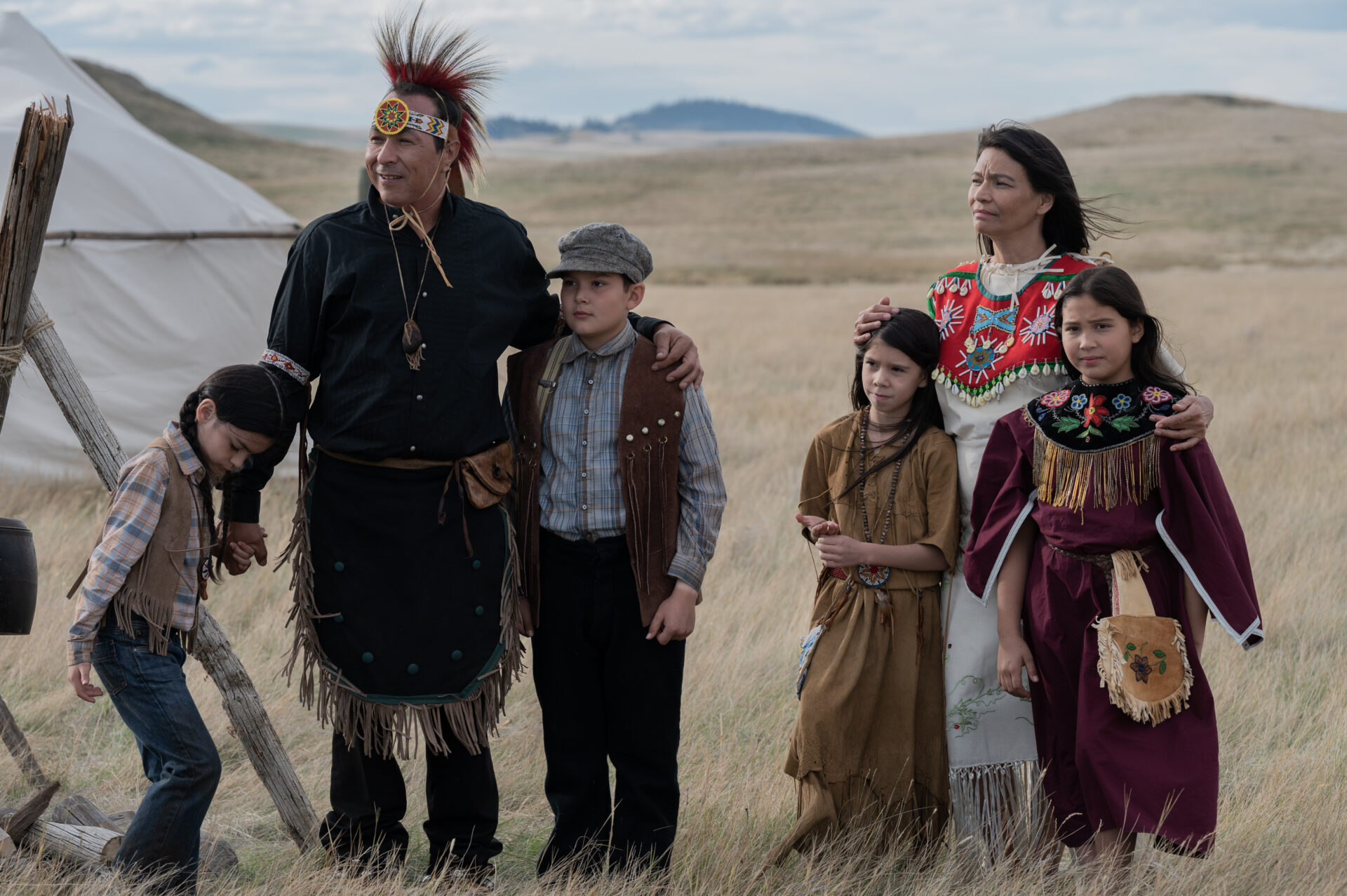
JAMES
And I think you need multiple stories right? You need many stories. Like you mentioned initially Indigenous actors were getting little bit parts and now we’re seeing shows like Bones of Crows. That’s an epic story. I watched that and I thought it really is an outline for a five-season series. Because it’s massive. Each episode could be ten episodes. But having that story now expands what you can tell in the future, I think.
MICHELLE
Exactly because again, it brought light to something that previously wasn’t lit up. Like that whole history most Canadians don’t understand any of it. Our own people are just beginning to understand what happened in reality and when you do bring light you bring life and then you’re right it just spreads out and it creates more conversations and it gives people permission to be able to discuss those things that were taboo twenty years ago. It’s about expanding consciousness really you know as artists.
I was proud of Bones of Crows. Marie Clements is a dear, dear, friend of mine from years ago. I’ve worked on many of her things and it took her five years to get Bones of Crows to camera. It took a huge team to convince CBC and to get all the funding and it’s a fully Indigenously created, directed, written, acted, performance.
JAMES
So, Artificial Intelligence has exploded onto the scene this year and it’s going to be disruptive in science and art and everything and I am just sitting here going well – this is good – this is bad – so I’ve been asking a few artists and a few friends what are their thoughts about AI. What sort of an impact do you think it’s going to have?
MICHELLE
I don’t know. I feel like I’ve got my head in the sand and I’m trying to avoid talking about AI because it really bugs me. I have so many friends that are all pro AI and how it’s going to change everything and I’m just like, “No, I just want real humans. I have a hard enough time checking out at Safeway with computers” I’m so old school in that way and so I’m sort of in denial about AI and I don’t have a lot to say about it.
JAMES
It’s hard to know what the impacts are going to be.
MICHELLE
It is. Even the SAG strike had a lot to do with AI. And who knows man. They can do a video now of you and change what you’re saying and that scares me.
JAMES
It’s getting difficult to be able to distinguish between the fake and the real. And that can be scary. So, I guess we’ll have to talk about this in five years?
MICHELLE
Exactly.
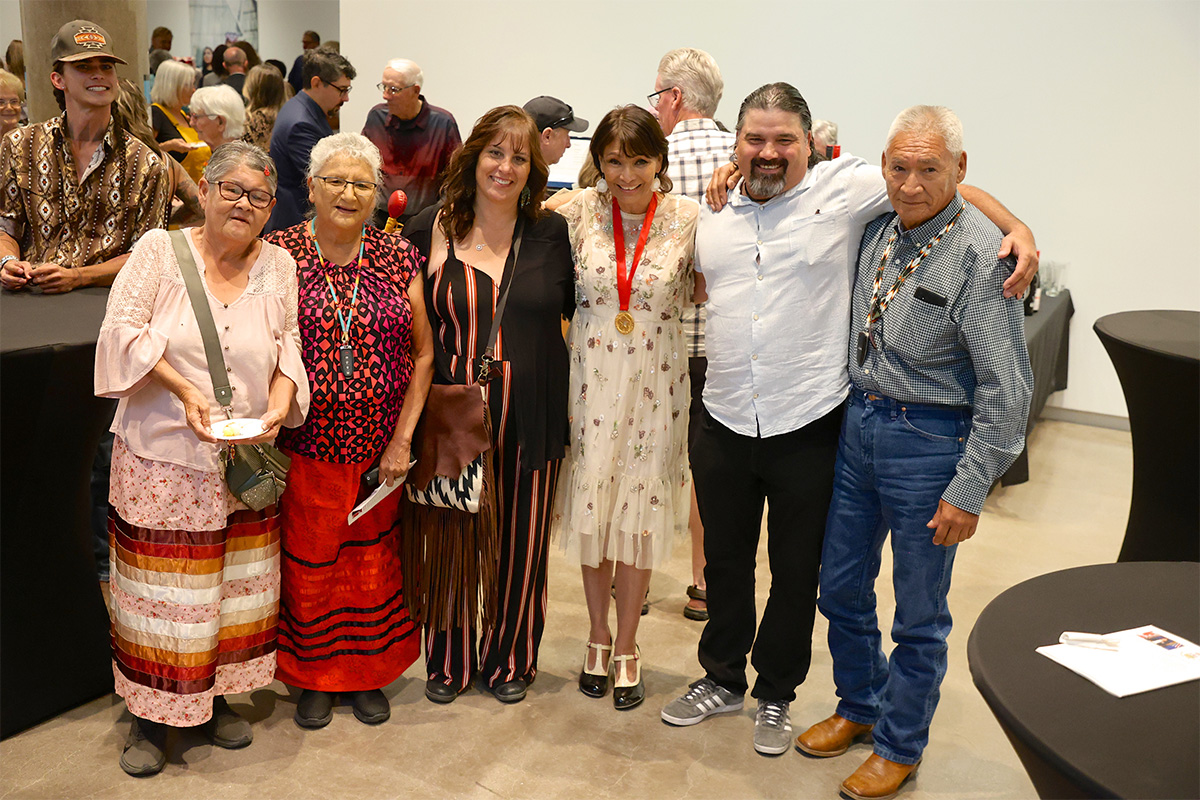
JAMES
So, you’re one of the recipients this year of the Lieutenant Governor of Alberta Arts Awards and I was wondering what was that evening like for you where everyone gathered to honour the recipients. What sort of evening was it and what does it mean to you to be recognized for the award?
MICHELLE
It was a fun weekend. It was a whole weekend it wasn’t just one evening. The funnest part of it was they did it in Medicine Hat this year and my family comes from Maple Creek which is just forty-five minutes down the number one highway on the Saskatchewan side. So, when I found out I was receiving this amazing award and that it was in Medicine Hat I called everybody – “Everybody’s got to come to this.” So, the highlight of receiving that award was having two or three rows of my family – Indigenous faces out there with all these government officials. And it’s not often that we feel comfortable or welcomed into these types of spaces, right?
JAMES
Right.
MICHELLE
Even just in theatre alone and that’s a big part of my whole agenda is trying to find ways to make sure that Indigenous people feel comfortable in the theatre. It’s the same thing for these types of awards. My cousin got the Chief to come and they did a ceremony with me when I went up on the stage. It’s a beautiful ceremony where they come up to you on both sides and they just wrap you in this blanket. And they did that with a star quilt which is a beautiful handmade style of blanket. And to me that was such a beautiful gesture of honour. I’m glad obviously I got the Lieutenant Governor Award and the gold pin and all that wonderful stuff but to have my family there and to be recognized in that way was also an honour.
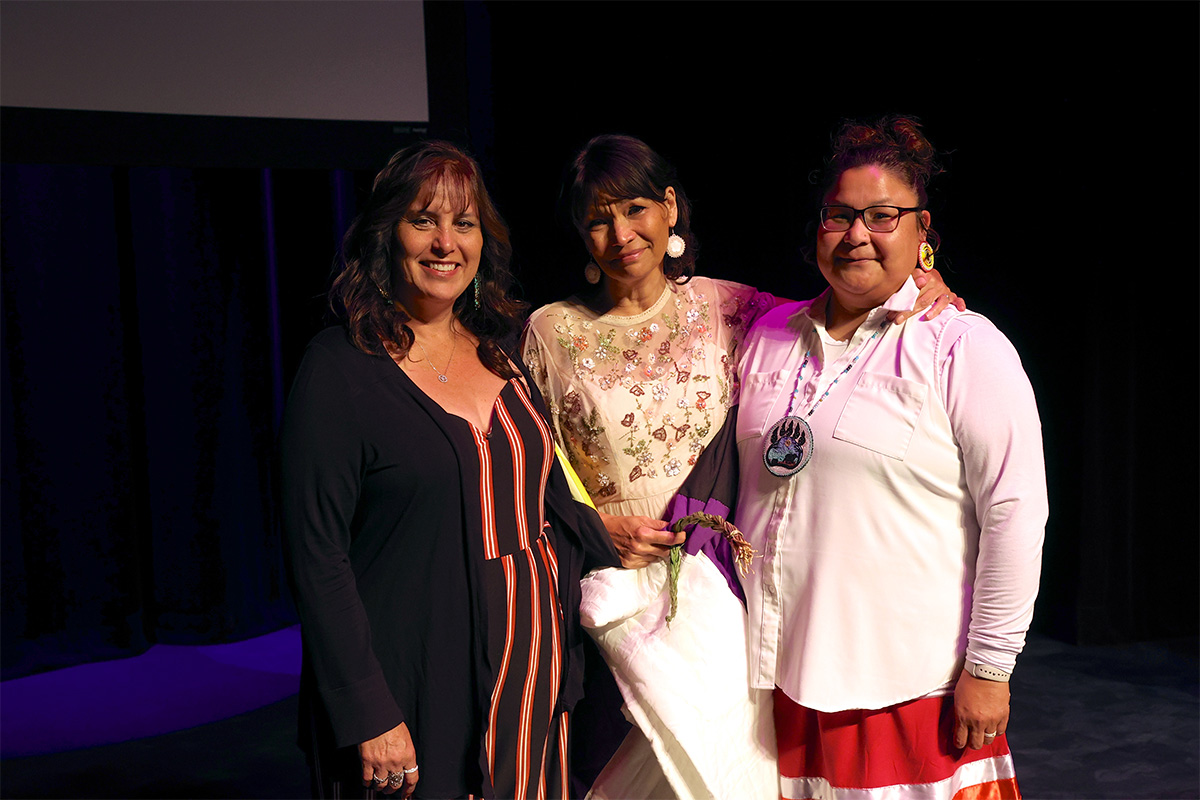
JAMES
How does it feel to be offering that mentorship now to others because Indigenous artists and young people today can look to you and see somebody who has a successful career?
MICHELLE
I try to stay away from this whole role model thing with Indigenous people. I don’t believe in putting anybody on a pedestal no matter who they are. I think we are all amazing contributors to each others light. But I do understand because when Blackstone came out my whole life shifted. I felt like a lot of my privacy was shifted with my own people because going to Pow Wows and stuff people are always coming up and they’re like, “Oh, my gosh, your character on that show was my mom or my auntie or my grandmother and then they would tell me this whole story of you know alcoholism in their family and how my character gave them permission to be able to discuss that.” And so again as an artist, it’s shining that light onto previous taboo topics and giving people permission to speak about it without shame and to share that load.
JAMES
How do you stay resilient then? Because that sounds like sometimes a heavy burden.
MICHELLE
I don’t know if it’s a burden at all. I think it’s just really a part of our development in this world. There are so many amazing beautiful things happening for Indigenous people right now. Like Reservation Dogs is on and we’ve got people in the NHL. And I remember I was on George Stroumboulopoulos back in the day – The Strombo Show – and I remember mentioning Wab Kinew who was rising up in the political scene and saying you know this is a young man who inspires me and now he’s Premier of Manitoba. And it’s just expanding continuously, and I get hope from seeing our young people. There are so many young people right now that are so resilient, and they are pushing boundaries that I never thought about when I was a teenager or when I was in my early twenties. I see these young people resurrecting language and being proud of who they are and that’s what keeps me going really is just knowing that we’ve got so many incredible young people.
